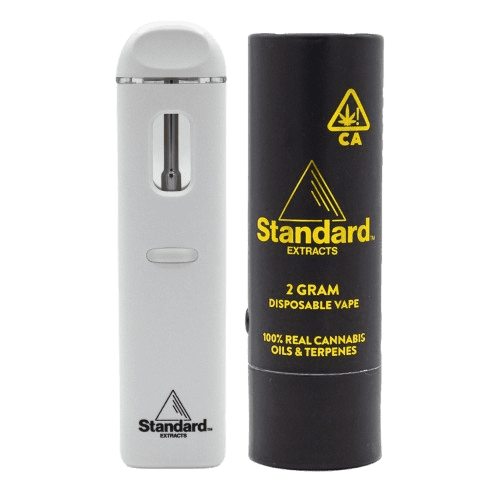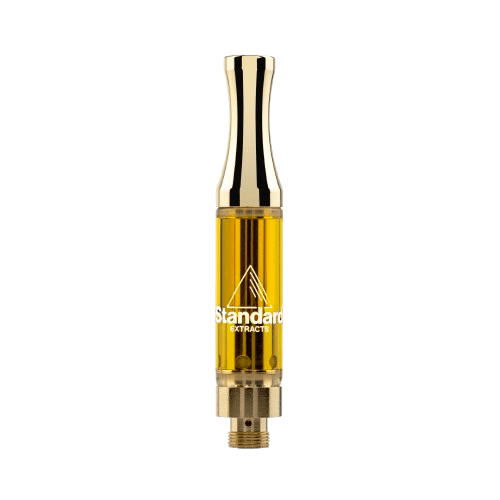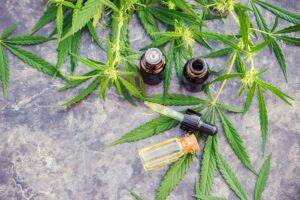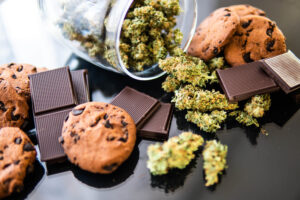Hemp Industry on the Brink: New Federal Ban Targets THC-Derived Products
Congress is quietly moving on a federal hemp THC ban in 2025 and it could reshape the entire U.S. hemp industry overnight. By targeting hemp-derived cannabinoids like Delta-8, Delta-10, HHC, and THCP, lawmakers are aiming to close the “loopholes” created after the 2018 Farm Bill.

For hemp brands, farmers, and consumers, this isn’t just another policy debate – it’s a direct threat to product shelves, revenue streams, and access to the cannabinoids people rely on every day. Here’s what you need to know before this ban becomes law.
Table of contents
- What’s Happening in Congress Right Now
- The Core of the Proposed THC Ban
- Why Congress Is Targeting Hemp-Derived Cannabinoids
- The “Intoxicating Cannabinoid” Clause The Most Damaging Part
- The Controversial “Synthesis” Language
- Why This Ban Feels Strategic | Not Accidental
- Why This Matters for the Hemp Industry
- How the Ban Could Affect Your Business
- What Happens to Delta-8, Delta-10, and Other Cannabinoids?
- Products Most at Risk Under the Hemp THC Ban
- What Hemp Businesses Can Do Right Now
- Industry Response and Pushback
- How to Stay Compliant and Resilient=
- FAQs: Answering Your Biggest Questions About the 2025 Hemp THC Ban
- Is Delta-8 THC going to be banned nationwide?
- Is CBD still legal under federal law?
- What is the difference between full-spectrum CBD and Delta-8 THC?
- Are hemp-derived cannabinoids like THCP and HHC safe?
- What happens if I still have Delta-8 products in stock?
- What are the best legal alternatives to Delta-8 THC?
- When will the THC ban officially go into effect?
- Will this affect hemp business licenses or product registration?
- Final Pro Tip: Focus on Longevity
- Final Thoughts What’s Next for the Hemp Industry?
- Quick Recap
- Final Word
What’s Happening in Congress Right Now
In a surprising and deeply concerning move for hemp businesses across the U.S., Congress is advancing legislation that could result in a sweeping hemp THC ban in 2025. The proposed federal ban specifically targets hemp-derived THC products, including the massively popular cannabinoids Delta-8 THC, Delta-10, THCP, HHC, and others that have exploded in popularity since the 2018 Farm Bill legalized hemp.
But here’s the kicker – this isn’t a standalone bill. Instead, lawmakers have quietly tucked this THC ban language into a broader federal budget package, which is currently being negotiated to prevent a government shutdown. That’s right: the future of the entire U.S. hemp and CBD industry may be riding on a high-stakes budget battle happening in Washington D.C. right now.
This move has sparked alarm throughout the cannabis and hemp sectors because it threatens to reverse years of growth in the legal hemp industry, particularly for businesses that depend on Delta-8 and other hemp-derived cannabinoids. With little public debate or transparency, this policy could slide through unnoticed – unless the industry pushes back immediately.
Why This Is a Big Deal
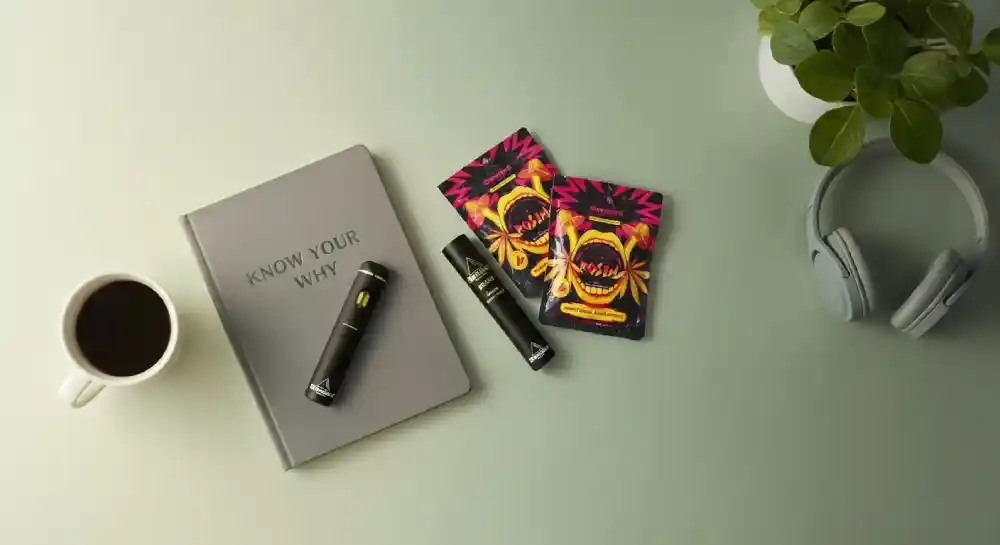
To put it plainly: if this Congressional THC ban passes, it would fundamentally alter what is and isn’t legal under federal hemp law. While Delta-9 THC remains federally illegal unless under a state-licensed cannabis program, Delta-8, Delta-10, and other isomerized cannabinoids derived from hemp have filled a lucrative legal gray area. That gray area would be eliminated entirely if this new definition of hemp becomes law.
According to the language inserted into the bill, any hemp product that has been chemically modified to create an intoxicating effect – even if it contains less than 0.3% Delta-9 THC – could become federally illegal overnight.
This move is seen by many as a direct attempt to:
- Close the so-called “loophole” that allowed intoxicating hemp products to exist legally under the 2018 Farm Bill.
- Appease anti-cannabis lawmakers who argue that unregulated hemp-derived THC is a public health risk.
- Regain control over a rapidly growing industry that has outpaced federal oversight.
THC-A Disposable Vape Pen (2G)
Rated 4.67 out of 5 based on 15 customer ratings(15 customer reviews)$39.99 – or subscribe monthly
Who’s Behind the Push for the Ban?
The language currently being debated is largely aligned with previous efforts from senators like Sen. Jon Tester (D-MT), who has consistently called for stricter federal hemp regulations. Tester and others argue that hemp-derived THC products are intoxicating, unregulated, and marketed irresponsibly, especially in states where marijuana is still illegal.
Supporters of the ban claim it’s about consumer safety, citing concerns over:
- Products being marketed to minors
- Inconsistent lab testing across states
- The psychoactive nature of isomerized cannabinoids
- Law enforcement’s inability to differentiate legal hemp from illegal marijuana in field tests
However, industry insiders argue this is a politically motivated overreach that risks decimating a legal industry employing tens of thousands of Americans.
No Time for Complacency
Many hemp business owners and trade associations were caught off guard by the sudden reappearance of this legislation. The lack of public hearings or open debate has only increased concerns that lawmakers are attempting to sneak this hemp THC ban through without industry input.
The fact that this ban is being attached to a government funding bill makes it especially dangerous, as many lawmakers may feel pressured to vote for the budget package, regardless of its impact on the hemp or CBD industry.
If this passes, businesses could be forced to:
- Pull key products from shelves immediately
- Halt online and wholesale sales
- Destroy inventory that becomes non-compliant
It’s not just Delta-8 at risk, it’s the future of all hemp-derived cannabinoids with psychoactive effects, which currently generate billions in legal revenue and are sold in nearly every state.
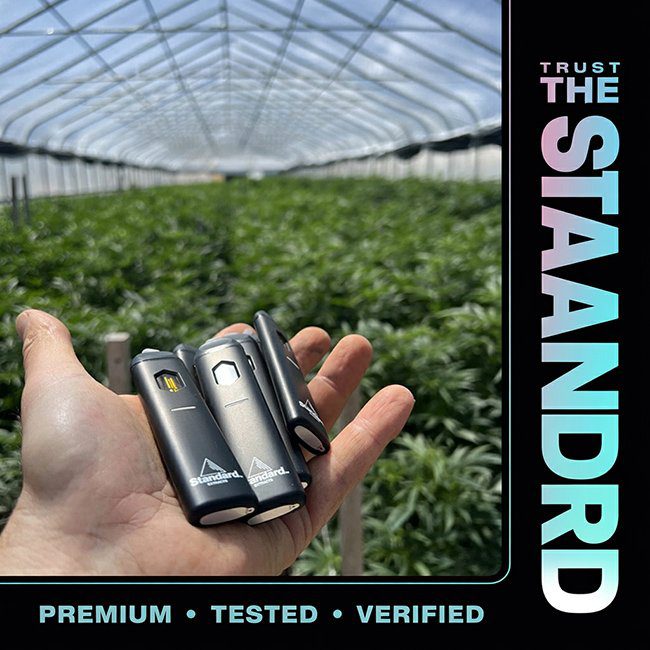
What the Proposed THC Ban Actually Says
As the conversation around the hemp THC ban 2025 intensifies, it’s crucial to look beyond headlines and understand exactly what Congress is proposing. The bill’s language tucked deep inside a massive federal spending package aims to drastically reshape the definition of legal hemp, closing the door on the booming market for Delta‑8 THC, Delta‑10, HHC, THCP, and other hemp‑derived cannabinoids.
In plain English: if this bill becomes law, the entire category of hemp-derived intoxicating cannabinoids would be outlawed nationwide.
But let’s break it down clearly, because the technical wording matters.
The Core of the Proposed THC Ban
The legislation attempts to revise the federal definition of hemp, originally established by the 2018 Farm Bill, by adding language that prohibits:
- Any hemp-derived cannabinoid that has been synthesized or converted from CBD or other non-intoxicating cannabinoids
- Any compound intended to cause intoxication, regardless of Delta‑9 THC concentration
- All “isomerized cannabinoids,” a category that directly includes Delta‑8 THC and Delta‑10 THC
This means that even products containing less than 0.3% Delta‑9 THC currently federally legal would become illegal if they produce psychoactive effects.
This aligns with earlier legislative attempts documented by Marijuana Moment, where lawmakers sought to “close loopholes” created unintentionally by the 2018 Farm Bill.
Why Congress Is Targeting Hemp-Derived Cannabinoids
Supporters of the ban claim the purpose is to ensure “consumer safety” and “restore the intent” of the original hemp laws. They argue that converting CBD into intoxicating THC analogs is a process that results in unregulated psychoactive products, often without federal testing oversight.
However, several industry groups including the U.S. Hemp Roundtable and the National Hemp Association have criticized the proposal, saying it will:
- Harm small hemp businesses
- Wipe out billions in future market value
- Push consumers into the illicit cannabis market
- Hurt farmers relying on cannabinoid-focused crops
The Congress THC legislation framing this ban leans heavily on the claim that consumers are at risk due to unpredictable potency or mislabeled cannabinoid products. But industry advocates argue that a regulatory framework not a blanket ban is the real solution.
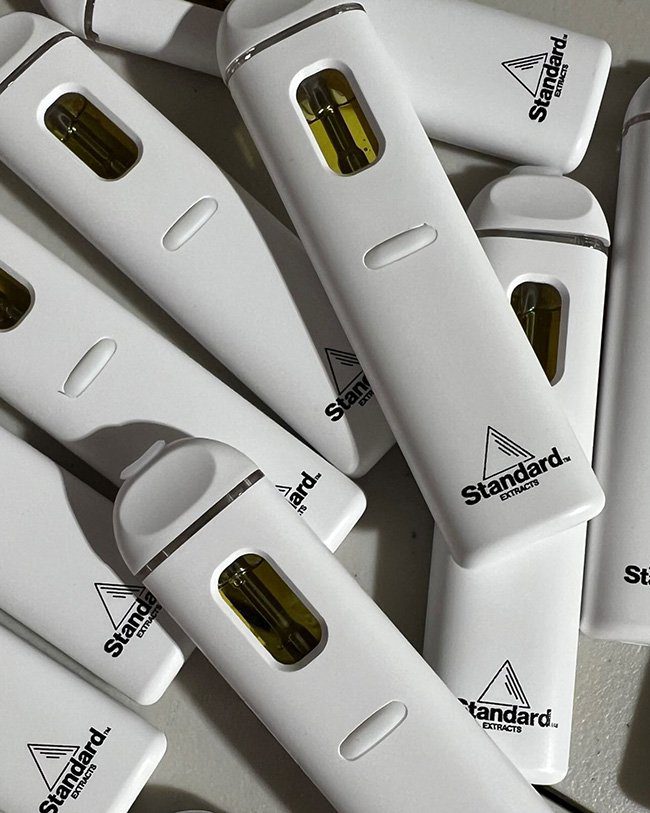
The “Intoxicating Cannabinoid” Clause The Most Damaging Part
The proposed legislation introduces a new federal term: “intoxicating cannabinoid.”
This is the real landmine.
According to the proposed update, any cannabinoid that affects the central nervous system and can cause intoxicationis prohibited from being sold as hemp even if naturally found in the plant.
This includes:
- Delta‑8 THC
- Delta‑10 THC
- THC‑O
- THCP
- HHC
- HHCP
- Any other hemp‑derived cannabinoid used to create psychoactive effects
This more aggressive definition goes much further than existing state-level restrictions, turning the hemp-derived cannabinoids market an industry worth billions into an illegal sector overnight.
For analysis on the economic impact, see Forbes‘ breakdown of the hemp-derived THC boom.
THC-A Disposable Vape Pen (2G)
The Controversial “Synthesis” Language
The bill also targets any hemp product produced using a chemical process, even if the resulting compound exists naturally in cannabis. This is aimed squarely at the conversion process used to create Delta‑8 and other cannabinoids from CBD isolate.
The reasoning: lawmakers consider these compounds “synthetic,” despite industry experts emphasizing that the molecules themselves are naturally occurring.
The problem?
Nearly all Delta‑8 THC in the U.S. is produced with this conversion process.
This clause alone would:
- Ban 90–95% of intoxicating hemp products
- Harm extraction labs and processors
- Leave retailers with unsellable stock
- Push consumers toward unregulated markets
The FDA’s past warnings about Delta‑8 products are being used as justification though critics say the FDA’s refusal to create a regulatory pathway for hemp cannabinoids created the very gray market being targeted.
Why This Ban Feels Strategic | Not Accidental
The decision to embed this THC ban into a federal spending bill rather than introducing it as a standalone vote suggests lawmakers know the measure may not survive open debate. The hemp-derived cannabinoid category is enormous, and public demand for products like Delta‑8 gummies, THC vapes, and hemp-derived edibles remains strong.
By attaching it to a must-pass bill, Congress increases the likelihood that the ban slides through with minimal pushback.
Lawmakers have used this tactic before in agriculture and controlled substances legislation, and critics are calling it a “stealth move” targeting an industry that has flourished due to regulatory gaps.
- U.S. Hemp Roundtable
- National Hemp Association
- Marijuana Moment coverage
- FDA Delta‑8 Safety Notice
- Forbes hemp-derived THC market insights
Why This Matters for the Hemp Industry
Let’s not sugarcoat it, this proposed federal hemp THC ban isn’t just a policy adjustment; it’s a potential seismic shift that could reshape the U.S. hemp market as we know it. And if your business depends on Delta-8 THC, Delta-10, or any hemp-derived cannabinoid with psychoactive properties, then yes this affects you.
A Rapidly Expanding Industry Now Faces Collapse
Since the passing of the 2018 Farm Bill, which legalized hemp (defined as cannabis with <0.3% Delta-9 THC), the U.S. has seen explosive growth in the cannabinoid space. Entire business models were built around products that remained compliant under that THC threshold, giving rise to legal and accessible alternatives like:
- Delta-8 THC gummies and vapes
- Delta-10-infused edibles
- HHC and THCP tinctures
- Legal THC beverages
These products created what some have called a “legal cannabis light” market available in many states where recreational marijuana remains illegal.
According to data from Brightfield Group, the U.S. market for hemp-derived cannabinoids surpassed $3 billion in 2023, with Delta-8 sales leading the pack. And that number was only projected to grow.
So, what happens if Congress abruptly bans the very cannabinoids driving that growth?
You guessed it the bottom could fall out.
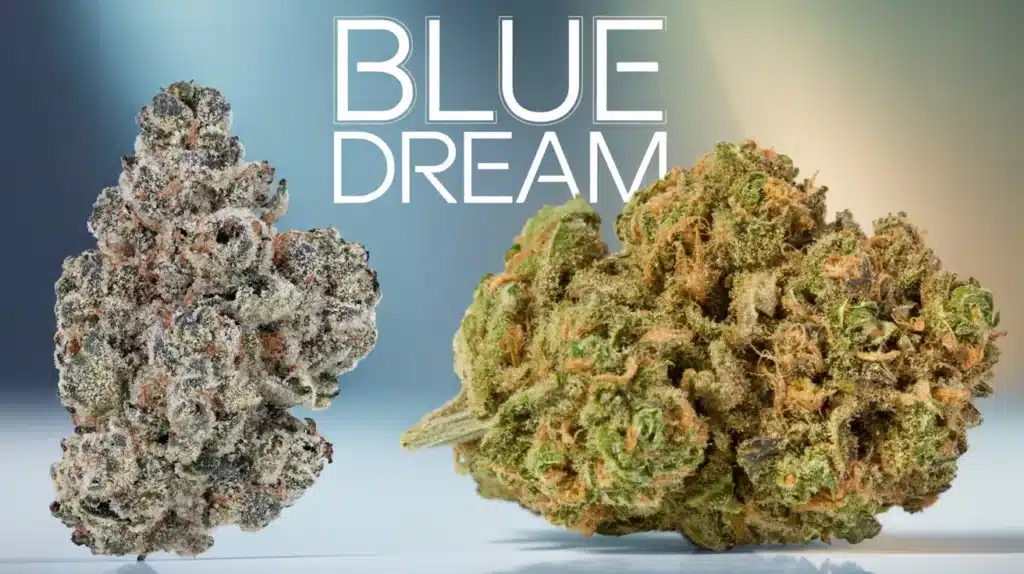
Immediate Consequences for Hemp Businesses
If passed, the 2025 hemp THC ban would:
- Outlaw many top-selling products overnight
- Force massive inventory losses across retailers, manufacturers, and distributors
- Result in layoffs, business closures, and supply chain disruption
- Leave consumers confused or frustrated, unsure of what’s legal or where to buy
Small-to-mid-size businesses especially those that rely on direct-to-consumer Delta-8 products stand to lose the most. Unlike large corporations with legal teams and diversified product portfolios, smaller operators often rely on just a few SKUs to keep the lights on.
💡 Want to see how real businesses are reacting? Check out this summary of industry concerns in Marijuana Moment’s coverage.
It’s More Than Delta-8 | It’s the Future of Hemp-Derived Innovation
Sure, Delta-8 THC is the headline product under fire but this proposed ban threatens much more than just one cannabinoid. It could block future innovations and limit the medical and wellness potential of lesser-known compounds like:
- CBN (used for sleep and relaxation)
- THCV (being studied for appetite suppression)
- CBDV (with potential anti-epileptic properties)
In a market built on natural plant chemistry and cannabinoid exploration, this blanket ban could slam the brakes on future research, therapeutic applications, and business opportunities.
And let’s not forget this industry includes more than just online CBD shops. It supports:
- Family-owned hemp farms
- Extraction and processing labs
- Packaging and fulfillment centers
- Retail storefronts across small towns and big cities
Each of these players contributes to the economic engine of the $28 billion hemp industry projected for 2025, and all are now at risk due to sweeping legislation with minimal input from the people it impacts most.
The Impact on Hemp Farmers
Farmers, particularly those in rural areas or cannabis-restricted states, will be some of the hardest hit.
Many have already pivoted away from growing grain or fiber hemp to focus on cannabinoid-rich hemp flower because that’s where the money is. If this bill becomes law, demand for those cultivars will dry up fast, potentially wiping out seasonal crops and long-term contracts.
According to the National Hemp Association, over 75% of hemp grown in the U.S. today is intended for cannabinoid extraction not fiber or seed.
So a ban on intoxicating cannabinoids isn’t just a product issue. It’s an agriculture crisis in the making.
A Legal Gray Area Becomes a Legal Black Hole
One of the reasons this ban is so disruptive is because it doesn’t offer a regulatory replacement just a legal void. Instead of setting quality standards, requiring testing, or regulating packaging (all of which the industry has called for), Congress is threatening to erase an entire market segment with no alternative plan.
If the bill passes, there will be:
- No federal guidance on how to transition existing product lines
- No clarity on how enforcement will work across states
- No compensation or support for businesses that followed the 2018 Farm Bill in good faith
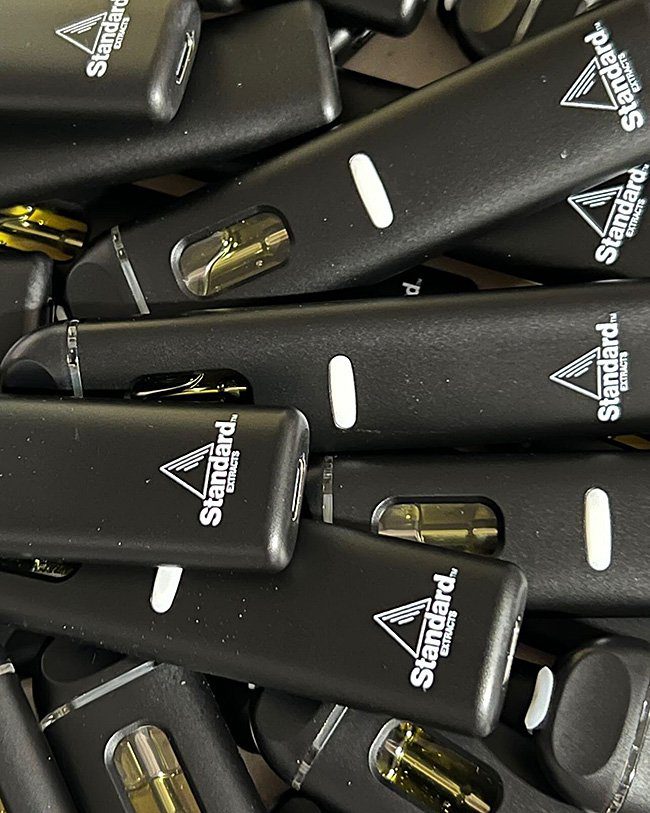
How the Ban Could Affect Your Business
If you’re operating in the U.S. hemp-derived cannabinoid space, the consequences of this proposed federal THC ban aren’t theoretical they’re personal, immediate, and potentially devastating.
The legislation under discussion would outlaw Delta-8 THC, Delta-10, THCP, HHC, and other psychoactive hemp-derived cannabinoids. And if your business relies on these compounds for even a portion of your sales you’re in the danger zone.
Let’s break down what this means for your CBD or hemp brand, whether you’re selling direct-to-consumer, through wholesalers, or at retail locations.
1. Immediate Loss of High-Revenue Products
Many hemp brands generate the majority of their monthly revenue from psychoactive cannabinoids like:
- Delta-8 THC vapes and edibles
- Delta-10 cartridges and gummies
- HHC or THCP tinctures
- THC-infused beverages derived from hemp
If these products are federally banned, they must be pulled from shelves immediately. That means:
- Lost revenue
- Canceled orders
- Unsellable inventory
- Fewer SKUs to offer loyal customers
According to a 2024 report from MJBizDaily, over 60% of hemp companies in the U.S. offer at least one Delta-8 product and many report it’s among their top 3 best-selling items.
So this isn’t a minor shift. This is a potential business model collapse for thousands of hemp entrepreneurs.
KO Blend Disposable Vape X – (2G)
2. Inventory Suddenly Becomes Illegal
Let’s say you’ve stocked up for the holiday season with a fresh batch of Delta-8 gummies or Delta-10 carts.
If the Congressional THC legislation passes and takes effect immediately (as many fear it will, given its placement in a must-pass spending bill), you’ll be stuck with product you can’t sell or even legally ship.
You may face:
- Restocking losses
- Refunds or chargebacks
- Non-compliance fines or cease and desist orders
- Waste disposal costs for now-illegal inventory
3. Disruption to Existing Wholesale and Retail Agreements
Retailers, distributors, and fulfillment partners that rely on your hemp-derived THC products may:
- Cancel or renegotiate contracts
- Request product swaps or refunds
- Pull your brand from store shelves
- Halt marketing or shelf placement efforts
If you’ve recently launched or scaled distribution, this could break B2B relationships overnight, pushing you back to square one.
This is especially critical for brands working with independent smoke shops, gas stations, and CBD boutiques, which often rely heavily on Delta-8 and similar products for foot traffic.
4. Operational & Legal Headaches Multiply
As your operations team scrambles to respond, your legal and compliance responsibilities multiply:
- Updating product labels
- Changing your COAs (Certificates of Analysis)
- Pulling ad campaigns, social content, or SEO pages
- Notifying customers of discontinued SKUs
You’ll also need to consult legal counsel to ensure your refund policies, return handling, and shipping partners are protected from liability.
The worst-case scenario? Unprepared brands face class-action suits, platform bans, or worse state or federal investigations for continuing to sell newly banned products.
Want to see how the FDA has historically cracked down on non-compliant hemp businesses? Review FDA’s CBD enforcement page.
5. Erosion of Customer Trust
Imagine being a consumer who’s relied on Delta-8 for anxiety, sleep, or pain and suddenly, your go-to product disappears, with no explanation.
This is a real possibility if your brand doesn’t communicate clearly and quickly.
Failing to properly inform your audience could result in:
- Lost loyalty
- Negative reviews
- Customer service overload
- Brand reputation damage
Your customers aren’t just looking for products they’re looking for brands they can trust, especially in uncertain times. This is where transparency and proactive communication will make or break your business.
6. A Shrinking Market (If You Don’t Pivot)
Without action, many brands will find themselves in a shrinking legal market, clinging to a few remaining non-intoxicating SKUs that may not drive the same excitement or margins.
This is where diversification becomes survival.
We’ll cover pivot strategies in Section 5, but the bottom line is this: the businesses that adapt quickly and smartly will emerge stronger. Those that wait for the dust to settle may not survive.

What Happens to Delta-8, Delta-10, and Other Cannabinoids?
If this federal hemp THC ban passes as proposed, the U.S. hemp industry could face the most dramatic crackdown since the plant was legalized in 2018.
Why? Because the bill aims to eliminate the entire class of intoxicating cannabinoids derived from hemp, including some of the most widely used compounds in today’s cannabinoid market.
Let’s break down what’s at risk compound by compound.
The “Intoxicating Cannabinoids” Clause Explained
At the heart of the proposed legislation is a dangerous little phrase:
“Any cannabinoid derived from hemp that causes intoxication or euphoria shall not be considered lawful under the definition of hemp.”
That single line, if passed, would criminalize many cannabinoids that are chemically similar to Delta-9 THC but are currently sold legally under the Farm Bill’s 0.3% THC threshold.
This means that even if a cannabinoid occurs naturally in the hemp plant, it can still be banned if it gets you high and that’s a major blow to hemp innovation.
Cannabinoid Legal Status Under the Proposed Ban
Here’s a quick breakdown of what’s likely to happen to some of the top-selling hemp-derived cannabinoids if this ban is enacted:
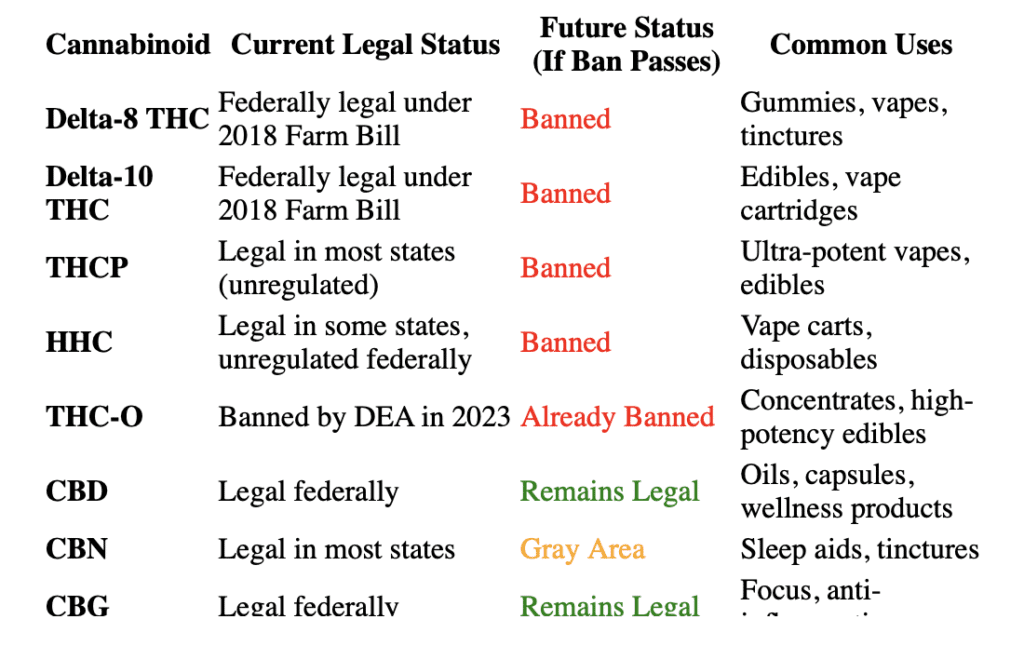
Why This Matters: Delta-8 and Friends Were the Foundation
Let’s be real Delta-8 THC is the cannabinoid that built the modern hemp retail industry.
In many states where Delta-9 cannabis remains illegal, Delta-8 filled the demand gap with legal products that mimic cannabis’s effects but stayed under the federal 0.3% THC limit.
It became the go-to for:
- Small-town head shops
- CBD e-commerce platforms
- First-time consumers curious about THC
- States without legal recreational marijuana
Brands like StandardCBD and others built entire product lines around these cannabinoids, offering accessible wellness and relaxation without stepping into legal gray zonesuntil now.
What About Minor Cannabinoids Like THCV, CBN, or CBC?
This is where things get complicated. While the bill targets “intoxicating” cannabinoids, not all cannabinoids are psychoactive. But some, like CBN and THCV, have mild psychoactive effects depending on dosage and user sensitivity.
- CBN: Typically used in sleep products. Might face scrutiny if it’s marketed as “sedating.”
- THCV: Sometimes called “diet weed” due to its appetite-suppressing qualities. May or may not be impacted.
- CBC and CBG: Generally safe, non-intoxicating, and expected to remain legal.
Until the final language is defined, these cannabinoids remain in a legal gray area, and brands should proceed cautiously with how they market and label these products.
Products Most at Risk Under the Hemp THC Ban
If you’re in the business of any of the following, you’ll need a contingency plan fast:
- Delta-8 edibles or vapes
- Delta-10 disposable pens
- HHC and THCP tinctures
- THC-O concentrates
- Any product marketed as producing a “high” or euphoric effect
Even blended products (like CBD gummies enhanced with Delta-8 or THCP) could be at risk.
⚠️ Pro Tip: Now’s a good time to revisit your product copy, labeling, and third-party test reports. The U.S. Hemp Roundtable recommends brands clearly differentiate non-intoxicating products to stay ahead of enforcement. Source: U.S. Hemp Roundtable Policy Alerts.
What Hemp Businesses Can Do Right Now
So, now that we know the stakes a potential nationwide hemp THC ban, a wipeout of Delta-8 and Delta-10 products, and billions in lost revenue the question is:
What can you actually do about it?
Whether the bill passes next week or stalls in Congress, smart hemp and CBD brands are already taking proactive steps to stay ahead of the curve, preserve their customer base, and build a more resilient business.
Here’s what you can start doing today.
1. Conduct a Full Product Audit
If you’re selling hemp-derived THC products, now is the time to assess your inventory, SKU performance, and compliance status.
Ask yourself:
- Which products fall under the potential ban (Delta-8, Delta-10, HHC, etc.)?
- What percentage of your revenue is tied to those SKUs?
- Are your COAs (Certificates of Analysis) up to date and clearly labeled?
- Are there alternative versions of those products using non-intoxicating cannabinoids?
Consider sunsetting or pausing high-risk items until there’s clarity on enforcement timelines.
2. Begin Diversifying Your Product Line
Don’t wait for regulation to force your hand. Brands that thrive long-term are already pivoting toward non-intoxicating products and wellness-forward SKUs, such as:
- Full-spectrum or broad-spectrum CBD tinctures
- CBG for focus and inflammation
- CBN for sleep and relaxation (while it’s still in the clear)
- Adaptogen + cannabinoid blends (think mushrooms, ginseng, ashwagandha)
- Functional hemp-based skincare or topicals
The demand for hemp wellness products is not going away it’s just shifting. You want to be at the forefront of that shift.
📊 For trending data on cannabinoids like CBG and CBN, check out Brightfield Group’s latest insights.
3. Communicate Clearly with Your Customers
Your customers are likely confused, maybe even panicking. Don’t leave them guessing.
Now’s the time to:
- Write a dedicated FAQ on your website about the 2025 hemp THC ban
- Launch an email campaign updating your customer base
- Publish educational blogs (like this one) to build trust
- Add a homepage banner or pop-up with key info or product transition updates
Transparency builds brand credibility especially when it feels like the rest of the industry is going silent.
4. Talk to Your Supply Chain Now
Reach out to:
- Your manufacturers and extractors Do they offer cannabinoid alternatives?
- Your distributors and resellers Are they aware of the risk?
- Your packaging and labeling vendors Can they fast-track changes?
Getting ahead of the curve now can prevent scrambling later if the law suddenly takes effect.
5. Consult with a Cannabis-Focused Attorney
Now is not the time to DIY legal compliance.
A qualified attorney can help you:
- Interpret the proposed federal THC ban in relation to your business
- Draft updated terms of service or product disclaimers
- Develop a risk mitigation strategy for inventory, marketing, and state-level operations
- Assist with lobbying or participation in public comment periods
Look for firms with experience in hemp law, like Vicente LLP or Greenspoon Marder’s Cannabis Law Practice.
6. Get Loud: Advocate for the Industry
This isn’t just about survival it’s about shaping the future.
Get involved with national trade organizations like:
You can:
- Contact your senators and representatives directly
- Share industry petitions or alerts on social media
- Contribute to public comment periods
- Attend local or virtual hemp advocacy events
A united voice is harder to ignore.
Proactive Steps At-a-Glance
Here’s a recap of the must-do items:
| Action Item | Why It Matters |
|---|---|
| ✅ Audit your products | Identify risks and prioritize pivots |
| ✅ Diversify product offerings | Reduce dependency on banned SKUs |
| ✅ Communicate with customers | Build trust and transparency |
| ✅ Check your supply chain | Avoid last-minute disruptions |
| ✅ Seek legal advice | Stay compliant and protected |
| ✅ Join industry advocacy efforts | Fight for a smarter regulatory future |
Industry Response and Pushback
While Congress quietly maneuvers to pass a nationwide ban on hemp-derived THC, the industry isn’t staying silent and neither are we.
From grassroots farmers to established CBD companies and national advocacy groups, voices are rising to challenge this sudden, sweeping legislation. The fight to preserve cannabinoid access and protect small businesses is in full swing.
And yes, StandardCBD is proud to be part of that fight.
National Advocacy Groups Are Sounding the Alarm
Organizations like the U.S. Hemp Roundtable and National Hemp Association have mobilized quickly to educate lawmakers, publish petitions, and organize direct outreach campaigns.
Their message is simple:
Banning hemp-derived cannabinoids outright will crush small businesses, hurt farmers, and eliminate access to safe, tested alternatives.
Here’s what they’re doing:
- Lobbying Congress to remove or revise the ban from the spending bill
- Encouraging constituents to contact their representatives
- Preparing legal challenges to protect compliant hemp operators
- Proposing regulatory frameworks (not bans) to address safety concerns
If you want to be part of the movement, join the action here: Take Action via U.S. Hemp Roundtable
Lawmakers Are Getting Pushback | Loud and Clear
Across the country, state legislators and industry allies are beginning to speak out against the federal ban, citing concerns like:
- Economic harm to local agriculture and manufacturing
- Job loss in hemp-rich states like Texas, Kentucky, Oregon, and North Carolina
- Government overreach affecting state-regulated markets
Some lawmakers are even calling this a “prohibition-style overcorrection”, comparing it to the early cannabis bans of the 20th century.
Where StandardCBD Stands
At StandardCBD, we believe in plant-powered wellness, safe access, and full-spectrum transparency.
We’ve spent years building a brand around trust, third-party testing, and education and we’re not backing down.
As regulations evolve, we remain fully committed to:
- Compliant, federally legal CBD products
- Transparency through lab-tested COAs
- Plant-based solutions you can rely on
- Advocating for a smarter, fairer cannabinoid policy
“We’re not just selling CBD. We’re building a movement around natural wellness and responsible access.” – Team StandardCBD
KO Blend Gold Vape Cartridges – 1 Gram
Explore Our Safe, Legal, Ready-to-Ship Products
Even as some cannabinoid products face uncertainty, StandardCBD’s bestsellers remain fully legal, compliant, and ready to support your wellness goals no matter what Congress decides.
Check out a few of our top THC-free, non-intoxicating alternatives:
CBD Full-Spectrum Gummies
- Natural relief with <0.3% Delta-9 THC
- Farm Bill compliant
- Third-party lab tested
CBN + CBD Sleep Formula
- Rest and recovery support without psychoactive effects
- Made with organically grown hemp
- Gentle and effective for nightly use
CBD Oil Tinctures (Natural + Mint)
- Available in multiple strengths
- Broad and full-spectrum options
- Crafted in the U.S. with hemp grown by trusted farms
These products represent the future of hemp wellness: compliant, calming, and crafted for results with or without Delta-8.
How You Can Join the Fight
This is a pivotal moment. Whether you’re a consumer, brand, retailer, or farmer your voice matters.
Here’s how to take action right now:
- Call or email your representatives
Use this simple tool from the U.S. Hemp Roundtable to contact Congress in 30 seconds. - Sign up for email alerts
Stay informed on regulatory updates by joining the StandardCBD Newsletter. - Support compliant brands
Every purchase you make from companies like StandardCBD helps us stay in the fight. - Share educational content
Spread awareness by linking to this blog post, reposting on socials, and tagging legislators.
How to Stay Compliant and Resilient=
Here’s the truth: the hemp industry has faced adversity before and it will again.
But if you’re proactive, informed, and flexible, your business can not only survive this federal THC ban it can evolve and thrive.
The companies that lead in 2025 and beyond won’t be the ones that gambled on loopholes. They’ll be the ones that stayed compliant, focused on transparency, and put their customers first.
Here’s how to build that kind of business resilience starting now.
1. Stay Current with Evolving Hemp Regulations
The regulatory landscape is shifting fast not just at the federal level, but in state legislatures, too.
Make it a priority to:
- Sign up for alerts from U.S. Hemp Roundtable and Marijuana Moment
- Subscribe to StandardCBD’s newsletter for curated legal updates (Join here)
- Follow updates from state agriculture departments and attorneys general, especially if you sell across state lines
Regulatory clarity = compliance confidence. Don’t get caught off guard.
2. Rethink Your Product Mix Safely and Strategically
Start leaning into non-intoxicating cannabinoids, wellness-forward blends, and products that will remain compliant regardless of what Congress decides.
StandardCBD has already made this pivot easier with products that customers can trust:
- Full-Spectrum CBD Gummies -Crafted for stress support, no gray area
- CBD Oil Drops – Available in natural or mint, with zero synthetic additives
These are the kinds of products that allow you to stay profitable and compliant without sacrificing customer satisfaction.
Looking to develop new products with compliant cannabinoids? StandardCBD offers white-label services and partnership opportunities. Contact us here.
3. Update Your Compliance Documents and Testing
In a post-ban landscape, documentation will be everything.
Make sure your business has:
- Up-to-date COAs (Certificates of Analysis) from reputable third-party labs
- Batch records and manufacturing data for every product
- Properly labeled SKUs, including clear THC content and cannabinoid breakdowns
Use labs that meet ISO/IEC 17025 accreditation standards and are well-versed in federal and state-level hemp testing.
For reference, here’s a guide to understanding COAs:
🔗 ACS Laboratory – How to Read a COA
4. Prioritize Customer Trust and Transparency
In chaotic regulatory times, one thing becomes even more valuable: trust.
Your customers want to know:
- What’s happening in the industry
- Whether your products are legal
- If they can continue using them safely
- What alternatives you offer if certain products are banned
So here’s what you can do right now:
- Add a “Compliance” page or banner to your website
- Launch a “Transparency Promise” blog or video series
- Share behind-the-scenes testing and sourcing details
- Use FAQ sections to address current legislation concerns
Remember: the more confidence you build, the longer your customers will stick with you.
5. Future-Proof with Diversification and Value
Don’t just react to the THC ban future-proof against the next disruption.
That means:
- Offering subscriptions to retain customers
- Bundling legal cannabinoid products with value-adds like wellness guides or free shipping
- Exploring non-cannabinoid SKUs like nootropics, mushrooms, or herbal adaptogens
- Building out email/SMS lists so you can reach customers directly even if ads get restricted
StandardCBD is already exploring new lines to help you stay one step ahead. Subscribe for updates on future product launches and formulations that blend legality, wellness, and performance.
Tools + Resources to Help You Stay Compliant
| Resource | Purpose |
|---|---|
| U.S. Hemp Roundtable | Advocacy & Legal Alerts |
| ACS Laboratory COA Guide | Lab Testing Clarity |
| FDA Warnings + Enforcement | Understand What’s Risky |
| StandardCBD Product Collection | Safe, Compliant CBD Alternatives |
FAQs: Answering Your Biggest Questions About the 2025 Hemp THC Ban
The recent movement in Congress has left many hemp consumers and business owners wondering:
“Is Delta-8 THC still legal?”
“Will CBD be banned next?”
“What products are still safe to buy in 2025?”
We’re breaking down the most frequently asked questions and answering them with clarity, facts, and long-tail SEO value baked into every response.
Is Delta-8 THC going to be banned nationwide?
Yes, if the proposed federal spending bill passes with its current language, Delta-8 THC will be federally banned.
Delta-8 is specifically targeted in the bill because it is a synthetically derived isomer of CBD, and it has psychoactive properties. Congress is aiming to remove all hemp-derived cannabinoids that can cause intoxication, including:
- Delta-8 THC
- Delta-10 THC
- THCP
- HHC
- THC-O (already banned by the DEA)
Is CBD still legal under federal law?
Yes. CBD products derived from hemp (with less than 0.3% Delta-9 THC) remain federally legal.
The proposed ban does not apply to non-intoxicating cannabinoids such as:
- CBD (Cannabidiol)
- CBG (Cannabigerol)
- CBC (Cannabichromene)
However, if CBD is used to synthesize psychoactive THC compounds, those specific end products would be banned.
What is the difference between full-spectrum CBD and Delta-8 THC?
Full-spectrum CBD products like our Full-Spectrum Gummies contain a range of hemp plant compounds, including trace amounts of Delta-9 THC (under 0.3%) for an entourage effect, but they are non-intoxicating.
Delta-8 THC, on the other hand, is psychoactive and synthetically converted from CBD, making it the target of this federal ban.
Are hemp-derived cannabinoids like THCP and HHC safe?
These cannabinoids are currently unregulated at the federal level, and safety concerns exist due to:
- Lack of consistent third-party lab testing
- Varying potency levels
- No long-term clinical data
That’s why StandardCBD chooses not to offer products like HHC or THCP, and instead focuses on federally compliant cannabinoids like CBD, CBN, and CBG all of which are tested, traceable, and trusted.
What happens if I still have Delta-8 products in stock?
If the ban passes, it’s likely there will be a brief enforcement grace period, but no official timeline has been confirmed.
Businesses may need to:
- Destroy or dispose of Delta-8 inventory
- Pull listings from websites and platforms
- Cease all marketing of psychoactive hemp products
Legal consequences will vary by state, but continued sale of banned cannabinoids could result in fines, license revocation, or lawsuits.
What are the best legal alternatives to Delta-8 THC?
You can still support your wellness goals with non-psychoactive, Farm Bill-compliant cannabinoids like:
- ✅ CBD Full-Spectrum Gummies – Mild, relaxing, fully legal
- ✅ CBN Sleep Gummies – Gentle support for better sleep
- ✅ CBD Oil Drops – Versatile, daily-use tinctures for mood and balance
These products offer natural relief without the risk of non-compliance.
When will the THC ban officially go into effect?
As of now, the bill is not yet passed but it’s moving fast.
Because the language is embedded in a must-pass federal spending bill, the timeline could be as short as a few weeks. There’s a real chance the ban could be signed into law before the end of 2025.
Follow updates via:
Will this affect hemp business licenses or product registration?
In some states, yes. If the federal ban becomes law, states that currently allow Delta-8 or Delta-10 sales may be forced to revoke business licenses or halt product registration for those items.
To protect your business:
- Contact your state’s hemp program administrator
- Begin transitioning to compliant cannabinoids
- Consult with a hemp business attorney familiar with federal-state law interaction
Final Pro Tip: Focus on Longevity
The best thing you can do right now?
Align your brand with what’s here to stay.
That means:
- Non-intoxicating, federally legal cannabinoids
- Full transparency through third-party lab testing
- Clear, educational messaging that builds customer trust
StandardCBD is already doing this and we’re here to help you do the same.
Explore our full range of safe, compliant, and effective CBD products →
👉 Shop StandardCBD Now
Final Thoughts What’s Next for the Hemp Industry?
As the dust settles around this proposed federal ban on hemp-derived THC, one thing is clear:
⚠️ The hemp industry is standing at a crossroads again.
For business owners, manufacturers, and consumers alike, this moment is as much an opportunity as it is a challenge. While Delta-8 and other intoxicating cannabinoids may soon be off the shelves, this isn’t the end of hemp.
It’s the start of a smarter, cleaner, more compliant future.
The Industry Is Pivoting Will You Lead or Lag?
Whether this legislation passes this month, next year, or not at all the message is clear:
Federal oversight is tightening.
And that means:
- The gray area for hemp-derived THC is closing
- Compliance will no longer be optional
- Brands that educate, adapt, and diversify will come out on top
- Customers will shift toward companies they trust to get it right
If you’re a brand, now’s the time to rethink your offering. If you’re a consumer, now’s the time to choose products that won’t disappear the next time the law changes.
What StandardCBD Believes
At StandardCBD, we’ve always believed that hemp should be:
✅ Accessible
✅ Transparent
✅ Federally compliant
✅ Focused on long-term wellness, not legal loopholes
We don’t chase trends we set the standard.
Whether you’re looking for daily support, natural sleep solutions, or a partner to help navigate this regulatory evolution, we’re here for it.
Explore some of our bestsellers legal today, and built for tomorrow:
- 🟢 Full-Spectrum CBD Gummies – Stress support with lab-verified compliance
- 🌿 CBD Oil Tinctures – A foundational wellness product that’s here to stay
🛒 Ready to transition your wellness routine to stable, compliant cannabinoids?
👉 Shop StandardCBD now
For Brands & Retailers: We’re in This Together
If you’re a business owner scrambling to adapt, you’re not alone and you don’t have to go it alone either.
StandardCBD is here to support:
- Retailers seeking compliant inventory
- Brands looking to white-label legal products
- Entrepreneurs building hemp businesses for the long haul
Interested in partnerships, bulk orders, or B2B opportunities?
📩 Contact us today and let’s future-proof your business, together.
Stay Informed, Stay Compliant, Stay Ahead
Here’s your short to-do list if you want to navigate this shift like a pro:
✅ Keep reading blogs like this (bookmark StandardCBD Blog)
✅ Sign up for legal alerts via U.S. Hemp Roundtable
✅ Audit your products now
✅ Focus on cannabinoids that are here to stay
✅ Build customer trust with education, not hype
✅ Support advocacy that gives this industry a voice
Quick Recap
- Delta-8, Delta-10, and similar cannabinoids face a likely nationwide ban in 2025
- The bill is tied to a federal spending package, making its passage more likely
- Hemp businesses must adapt quickly or risk major losses
- CBD, CBG, and CBN remain legal and represent a compliant path forward
- StandardCBD offers safe, lab-tested alternatives that are ready for what’s next
Final Word
No one knows exactly how the hemp industry will look six months from now. But here’s what we do know:
🟩 Resilient brands will evolve.
🟩 Educated consumers will demand transparency.
🟩 And hemp, as a healing plant, will continue to thrive legally and responsibly.
At StandardCBD, we’re proud to lead the way.
Thank you for reading. Now let’s keep growing.
Don't Just Take Our Word For IT

“I’ve tried many vape products claiming to use real terpenes, but this one truly delivers. The flavors are vibrant and true to the source, and the hits are incredibly smooth. It’s evident that a lot of care and attention to detail went into creating this product”
Sasha Belker
Princeton, New Jersey

“Loving the Amanita Chocolate Bar! In San Diego I’m always up for a good time, and this is my new go-to. Just one piece and I feel amazing—way better than a drink. Perfect for unwinding and sparking creativity without the hangover.”
Julia Chastely
Malibu, California

Christopher Jenner
Mar Vista, California

“The best cartridge for taking on the boat and to the beach with my girls. Only problem is, they always ask to smoke MY pen because the flavor is amazing! Stocking up!”
Amy Rodgers
Miami, Florida

Karla Doughty
Charleston, South Carolina


